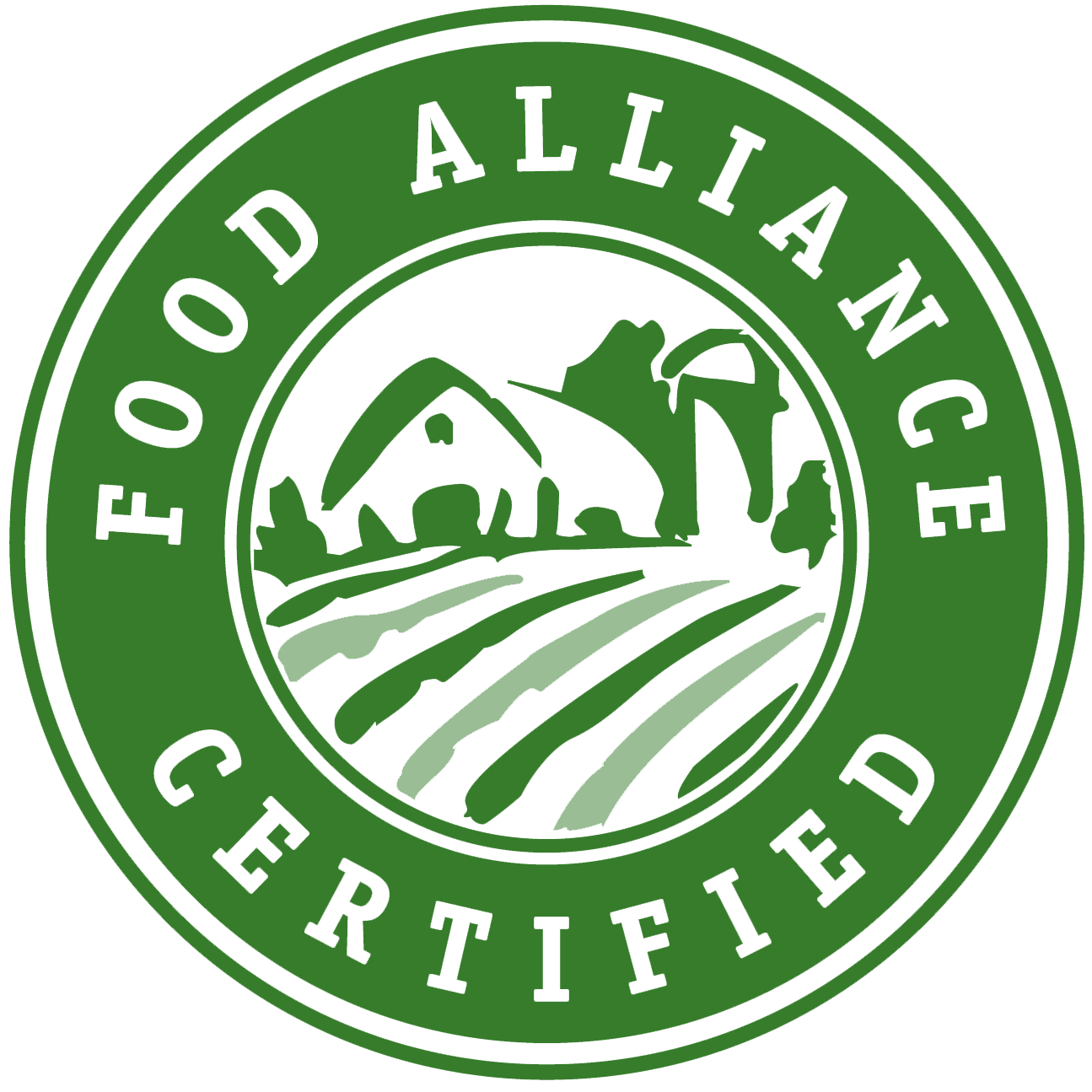Client Spotlight: Bowles Farming Company
Bowles Farming Company, a sixth-generation family farm rooted in California’s San Joaquin Valley, has been a Food Alliance client since 2012. Led by Cannon Michael, the farm blends deep agricultural heritage with forward-thinking innovation, using its platform to model sustainability, community engagement, and transparency in a rapidly evolving food system.
“Sustainability is foundational to who we are — embedded in how we farm and treat our land, people, and community,” says Cannon. “We believe sustainability must be proven, not proclaimed. What sets us apart is our holistic approach, rigorous verification, and measurable action to create lasting value for future generations.”
Founded in 1965 by the Bowles siblings, the company’s roots stretch back to 1858 with Henry Miller’s establishment of Miller & Lux. Today, Bowles Farming Company stewards approximately 11,000 acres, growing a diverse mix of crops including tomatoes, cotton, melons, and nuts. Their environmental stewardship is reflected in practices like converting 80% of their land to drip irrigation—cutting water use by up to 50% while improving yields and crop quality.
Embracing Verification and Continuous Improvement
Bowles Farming Company embraces external audits and sustainability certifications as vital tools for accountability and growth. “We pride ourselves on embracing audits, certifications, and external validation through organizations like Food Alliance,” Cannon explains. “Rather than viewing these as hurdles, we see them as essential to continuous improvement.” Their certifications span the Better Cotton Initiative, Bee Friendly Farming, CCOF, GLOBALG.A.P., PrimusGFS, regenagri, and the U.S. Cotton Trust Protocol.
Bowles implements regenerative practices and holds Regenagri certification as part of its long-term soil and ecosystem health commitment. In addition to growing food and fiber, the farm manages 635 acres of conservation habitat and has engaged in riparian restoration and native species planting for over a decade, beginning with the Pick Anderson Riparian Restoration Project launched in 2012. This work focuses on enhancing habitat for migratory species and improving biodiversity along natural waterways.
In parallel, Bowles has implemented selective native plantings across the farm to support pollinator health. The focus is on creating habitat corridors and introducing regionally adapted flowering species that benefit both pollinators and the broader ecosystem.
The farm also processes municipal green waste into compost, improving soil health while contributing to California’s climate goals through organic waste diversion under SB-1383. Through partnerships with organizations like Agrology, Bowles monitors key soil health indicators and assesses carbon sequestration potential as part of a broader regenerative strategy.
These efforts reflect a long-standing, farm-wide commitment to environmental stewardship — built on measurable outcomes, scientific collaboration, and integration with core production goals.
Transparency and education are equally central to their work. Bowles Farming Company regularly hosts high-level tours for policymakers, regulators, environmental advocates, and industry leaders. “The best way to counter misinformation is to create space for genuine connection and open conversation,” Cannon says. “I welcome other perspectives and am not afraid of debate. When people are willing to come to the farm, it’s an opportunity to engage constructively and provide real-world context.” These visits help decision-makers better understand complex topics such as labor policy, water use, and environmental compliance in California agriculture.
Cannon acknowledges the challenges of farming in a highly regulated state. “California has some of the most rigorous environmental and labor protections in the world — and we support that,” he explains. “The challenge is that California producers are held to these standards while competing against imports from regions with lower expectations. If we want to maintain high standards and keep local food viable, we need better alignment between policy, consumer behavior, and market realities.”
Community Support and Development
Bowles Farming Company also believes deeply in giving back to the community. Their Directed Giving Program allows employees to direct company-funded donations to local nonprofits of their choice, ensuring philanthropy is grounded in the real needs of the community. The BF Scholars Program provides scholarships and school supplies for employees’ families, while Ag Day school visits introduce students to agriculture and its economic role in the region.
Workforce development is a long-standing focus. Through their Employee Advancement Program, Bowles has created pathways for hourly employees to move into salaried leadership roles—an investment in people and the long-term vitality of their operation. Other initiatives, like a composting partnership with local municipalities and an emerging grain-to-bakery program, exemplify how sustainability, innovation, and local economic development can intersect.
“As a sixth-generation family farm, we take a long view of sustainability,” Cannon reflects. “Our commitment extends far beyond a single growing season — it’s about maintaining resilient soils, healthy ecosystems, and strong communities for the future.”
Bowles Farming Company continues to stand as a leader in responsible agriculture—showing that honoring tradition, investing in people, and embracing change can go hand in hand to create a more just, sustainable, and transparent food system.







